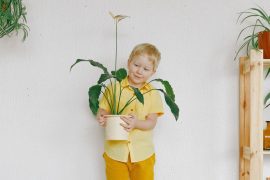By Jeremy Majid
Long before I became a father, I went to yoga to manage back pain. It was there that I was first exposed to the idea that you could control your mind. As each class drew to a close, I lay still, but my mind wandered. I became curious about mindfulness and went to meditation classes at a Buddhist centre. The philosophy resonated as I researched further and I started practising at home. Eventually, I could actually sit and meditate. A small amount of attention control translated to huge benefits in everyday life.
During a job interview, I could think deeply about the intention behind a question. While coaching a volleyball grand final, I remained calm and focused on the process, not the outcome. When I encountered aggressive driving, my hand never approached the horn. I could see the world more clearly. Was this a small step towards enlightenment?
And then our baby girl became a toddler. She stared unblinkingly at me while scratching my face, having previously refused to have her nails cut.
I lost it. I couldn’t stop myself from shouting and swearing, my throat raw from the outburst.
I left her crying while I stormed off, lest things escalate.
Unfortunately, this was not an isolated incident. Sometimes it was the slow realisation that the sharp pain in my leg was coming from my daughter’s teeth, other times the culmination of many small frustrations leading to ridiculous overreactions. I worried that she would be left with psychological scars. This could not go on.
I perused the parenting section of the library and discovered a book called Calm Parents, Happy Kids by clinical psychologist and mother, Dr Laura Markham. She explains that toddlers are often physically overwhelmed by their feelings and look to us to show them how to regulate their emotions: “most of what we call parenting doesn’t take place between a parent and child but within the parent”. Exactly the opposite of what I’d been doing.
One afternoon, having just woken from her nap, I told my daughter we were going out to her favourite restaurant for dinner.
The excitement visibly rose within her and her arms flailed about, slapping my face. For the first time, I could see how strong a grip her emotions had over her.
I could now empathise with her, but even so, she would eventually wear me down. She always seemed to be naughty at the most inconvenient times, which I realised were when my focus was elsewhere. So I changed my priorities. The dishes could wait while we played with her new toy from the library. I actively participated as she led imaginary play, marvelling at her creativity and powers of observation. Most importantly, she didn’t have to compete for my attention, she already had it.











